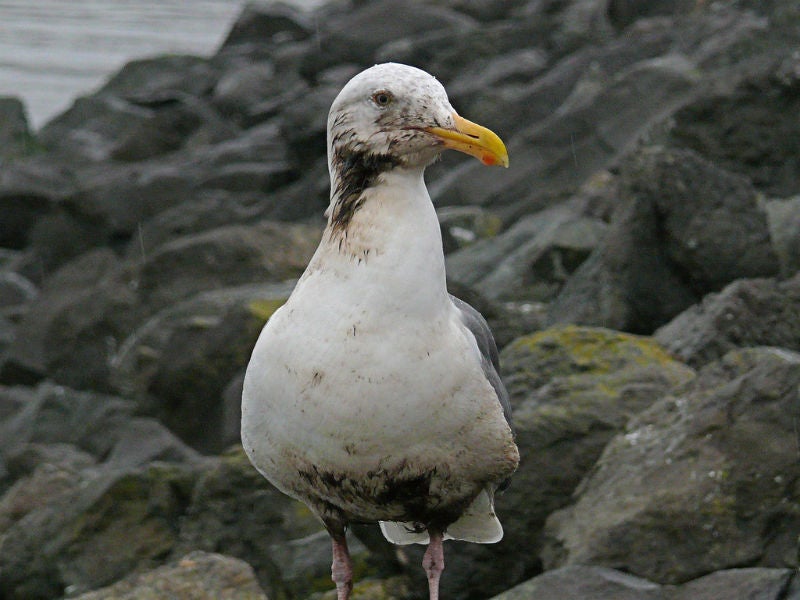
Assessing the Environmental Impact of Oil Spills
While safety is a priority for oil and gas companies, spills do happen and can have potentially devastating effects on surrounding ecosystems. But precisely how do they damage the environment, and what impact could this have on humans? Offshore Technology explores the effects of oil spills.
Effects of oil spills on wildlife
Oil-drenched seabirds have become the prevailing image of the effects of oil spills, with the chemicals released by oil spills having the ability to disrupt their bodily functions to such an extent that biologist Sylvia Gaust argued that killing oil-soaked birds would be kinder than cleaning them.

Discover B2B Marketing That Performs
Combine business intelligence and editorial excellence to reach engaged professionals across 36 leading media platforms.
Oil spills can coat the feathers of birds, making flying impossible and removing the natural insulation and waterproofing the feathers provide. This leaves the birds susceptible to hypothermia or overheating. Attempts to remove the oil through preening also causes birds to swallow oil, which causes severe organ damage.
Migratory patterns and nesting grounds can be contaminated by oil spills, with potentially disastrous effects on natural life cycles of many species of bird. York University Toronto associate professor Gail Fraser said: “Seabird mortality is a concern because of their life history traits. They have delayed reproduction, some species don’t start breeding until they’re three or four, sometimes even eight or nine years of age and have really low reproductive rates.
“They also live a long time, which means that their populations are sensitive to adult mortality; adult mortality can cause a population to decline.
“Oil doesn’t distinguish between non-breeding adults and other adults, and relatively small proportion of adult mortality can cause populations to decline. Because of delayed reproduction, it may take time detect the decline. “

US Tariffs are shifting - will you react or anticipate?
Don’t let policy changes catch you off guard. Stay proactive with real-time data and expert analysis.
By GlobalDataMammals are also vulnerable to the effects of oil spills. Much like with birds, oil can coat the insulated fur of marine mammals and leave them open to overheating or hypothermia.
Oil can also clog the blowholes of cetaceans such as dolphins and whales, affecting their ability to breathe and disrupting their communication through echolocation.
Marine ecosystems rely on complicated and delicate relationships between organisms and their environment, which can be significantly disrupted by oil spills. Food sources contaminated by oil can destabilise entire food chains, and oil spilling onto nesting grounds and breeding sites can cause long-term damage to food chains and life cycles.
Human impact
The effects of oil spills on wildlife can in turn adversely affect humans. For instance, the contamination of local ecosystems can impact communities who rely on said ecosystems to survive, with crops and food sources becoming poisonous or disappearing altogether as a result of food chains being destabilised.
Water supplies in surrounding areas are at risk of contamination from oil spills. In 2013, oil spills interrupted the supply of water for 300,000 people in Miri, Malaysia and 80,000 people in Coca, Ecuador.
Fishermen and local ship workers can lose their sources of income due to the health problems associated with exposure to oil such as respiratory damage, decreased immunity and increased cancer risk. This could deprive communities of essential resources and revenue needed to support themselves.
Oil spills can affect the air quality in surrounding areas, releasing toxic chemicals into the atmosphere. Following the 2010 Deepwater Horizon disaster, a 2015 study found concentrations of benzene and fine particulate matter around southeast Louisiana that were “high enough to exceed public health criteria, with measurable exposure disparities in the coastal areas closer to the spill and clean-up activities.”
A 2019 study in Nigeria, Africa’s most populous country and largest oil producer, discovered that nearby oil spills increased neonatal mortality by 38.3% per 1,000 live births. Further evidence suggesting these effects persist for several years after an oil spill takes place, with the study describing the impact as “an alarming ongoing human tragedy”.
Attempts to clean oil spills run the risk of exacerbating these problems, such as controlled burnings of oil slicks that can contribute to air pollution or the dispersants used to dissipate oil slicks, which can potentially increasing the contamination of surrounding water and wildlife. In colder areas oil-eating microbes are slowed down, leaving those areas particularly vulnerable to oil spills.



